How to download, install and configure MySQL 5.7.27
This article will introduce to you how to download, install and configure MySQL 5.7.27. It has certain reference value. Friends in need can refer to it. I hope it will be helpful to everyone.

MySQL 5.7.27 Detailed download, installation and configuration tutorial
Preface
You will encounter many problems when installing MySQL, on the blog There are many ways to solve the problem. Here I attach some links. Friends who encounter problems can read and refer to it. This article is mainly for beginners who are new to databases to install the MySQL database. Currently, the MySQL versions on the official website are 5.5, 5.6, 5.7 and 8. During development, we usually choose a version 1 to 2 lower than the latest version, so I chose 5.7 as the database to be installed
1. Download steps
Visit the official website: https://www.mysql.com/
Select Community
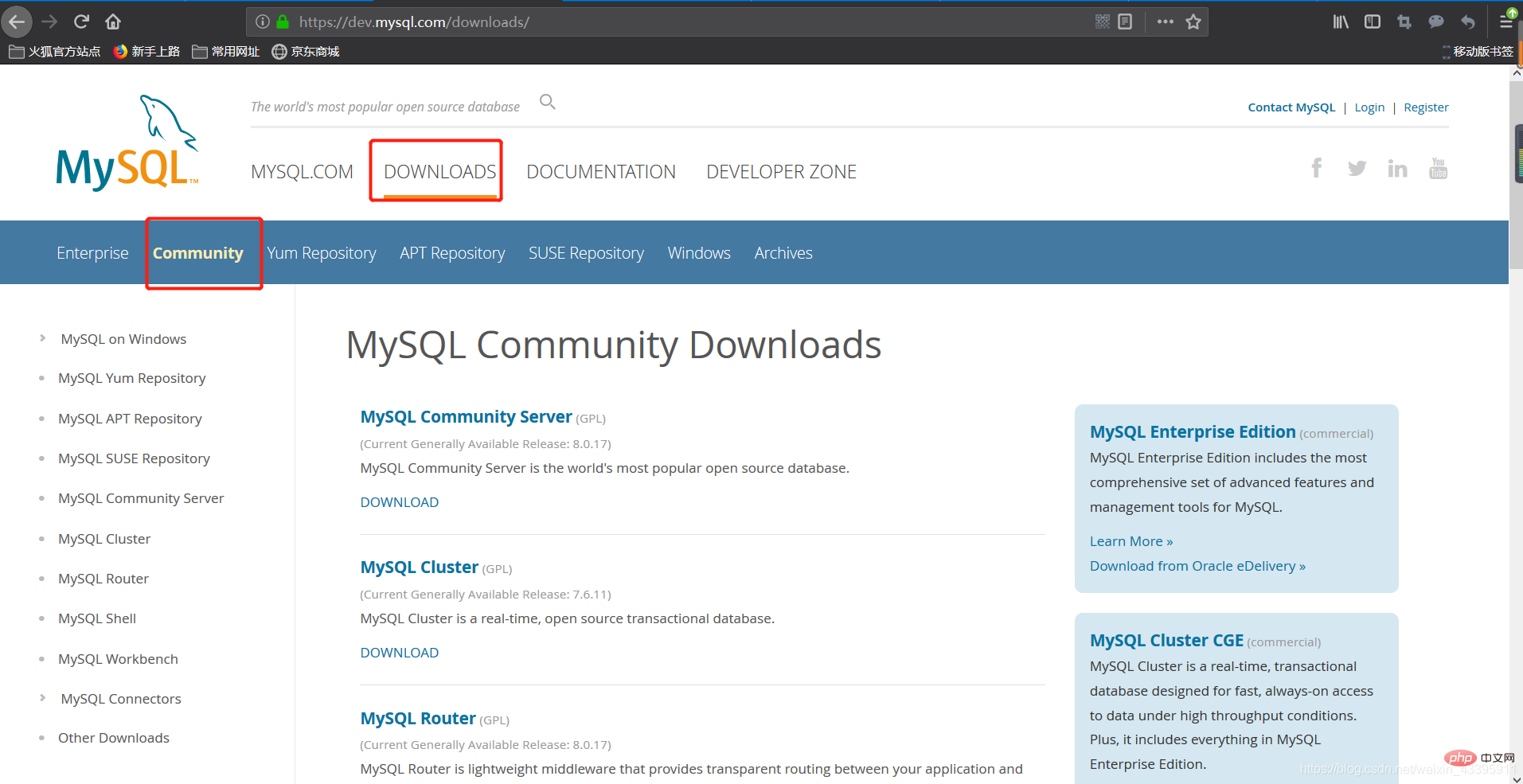
under Downloads Download the corresponding version
Click on MySQL Community Server in the picture above to enter the download interface:
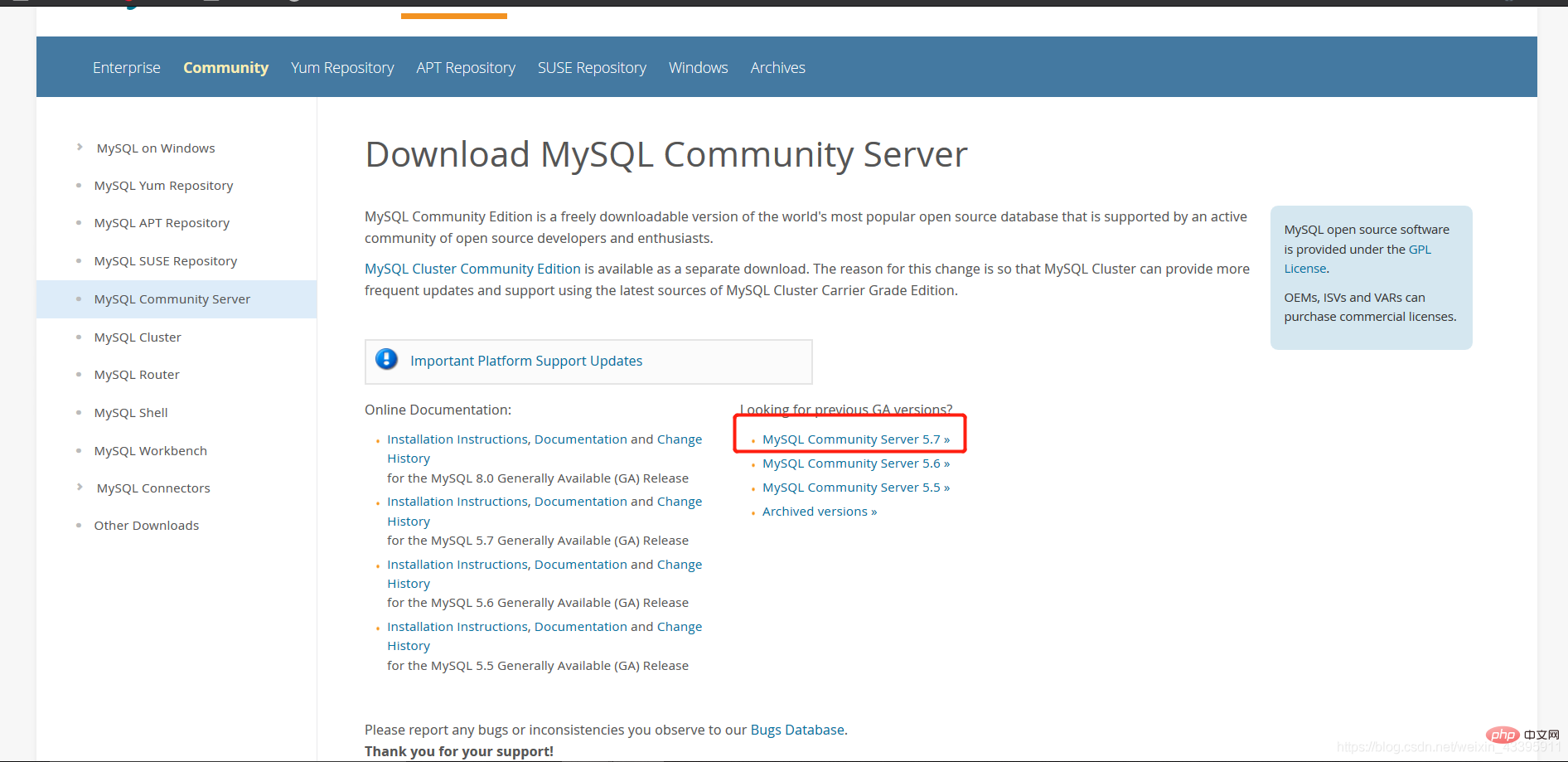
Find the link MySQL Community Server 5.7 and click to enter:
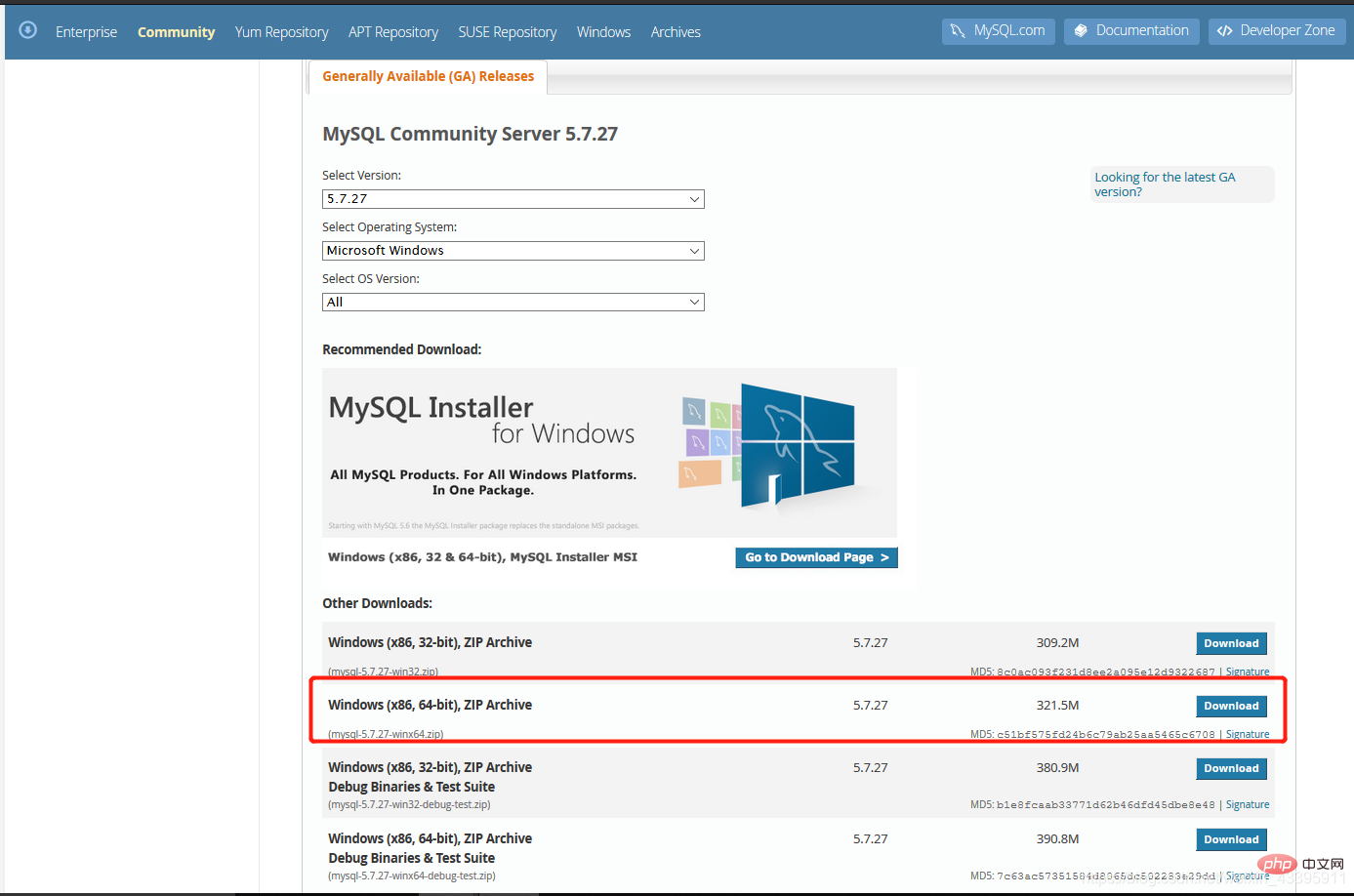
Choose to download the corresponding ZIP file according to the version of your computer. My computer is 64-bit, so select this to download. Click Download to enter the following interface:
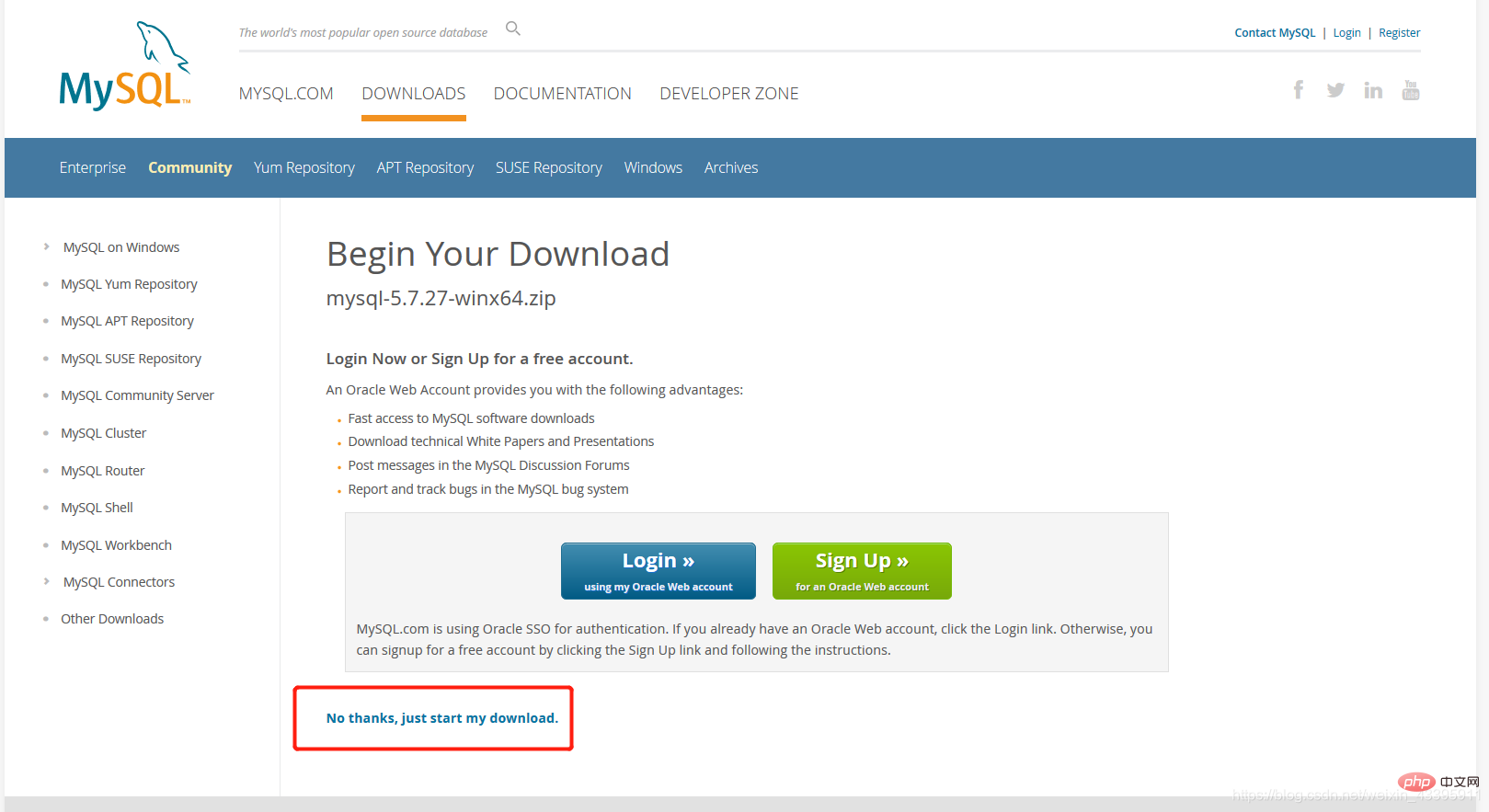
Click No thanks, just start my download, and then start downloading
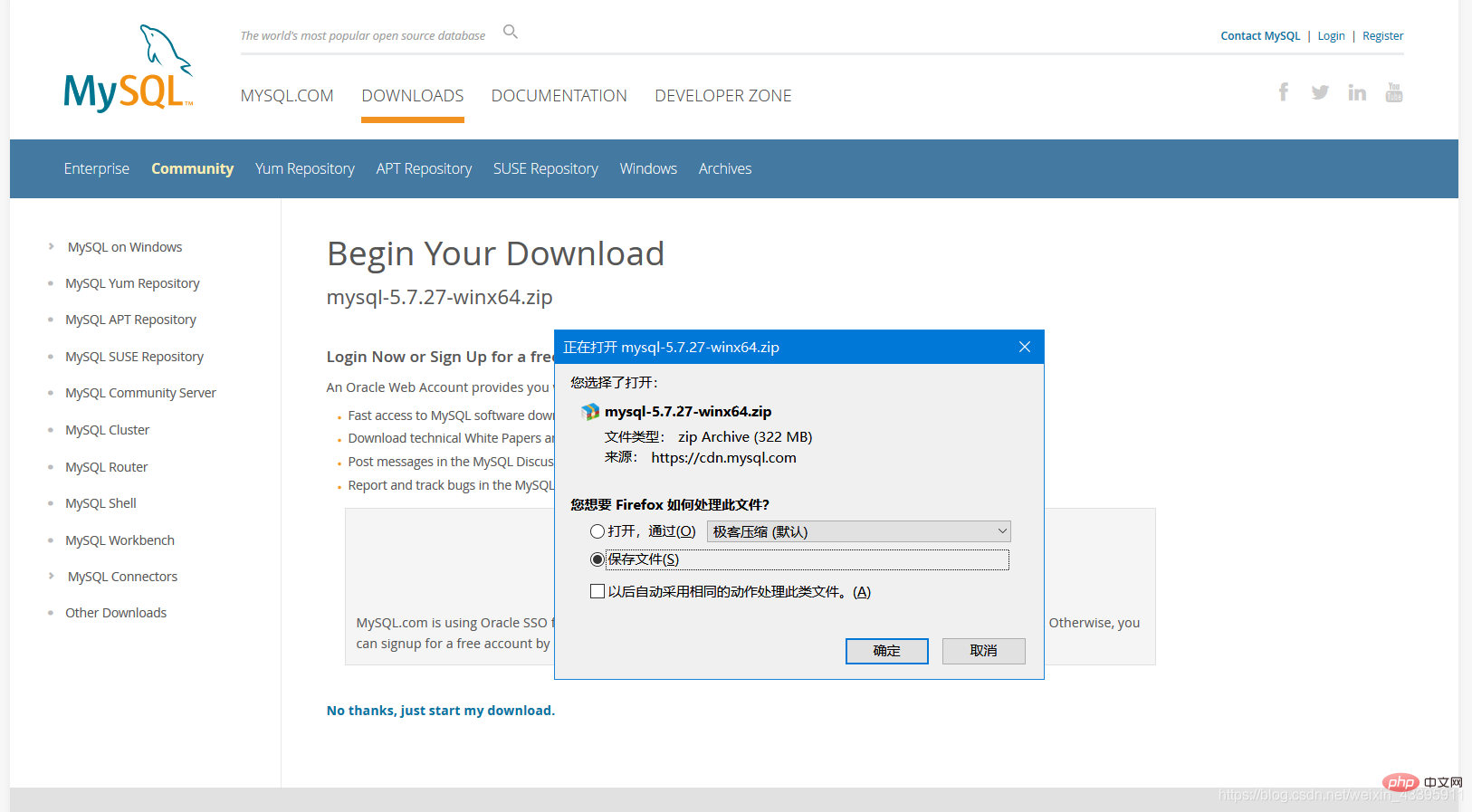
After downloading, extract the file to your The disk and directory you want to save to. I unzipped the file to the E:\Program Files\Mysql directory.
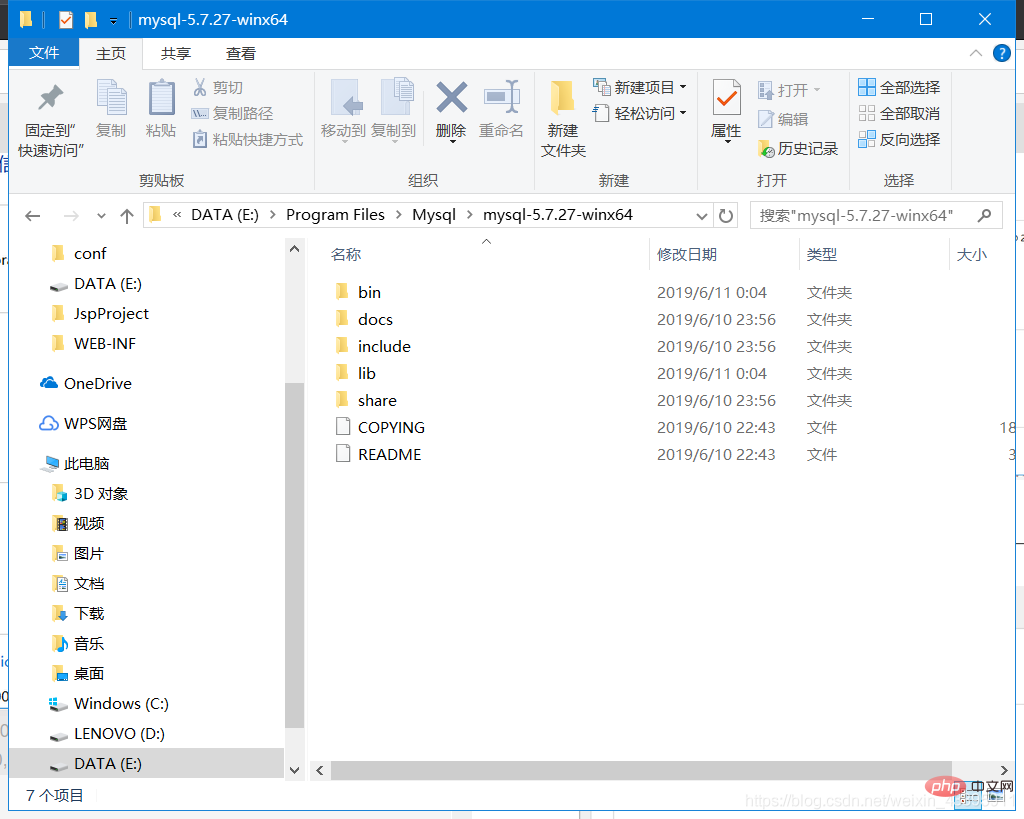
The above completes all the downloading work.
2. Configure environment variables
System—>Advanced system settings—>Environment variables—>System variables
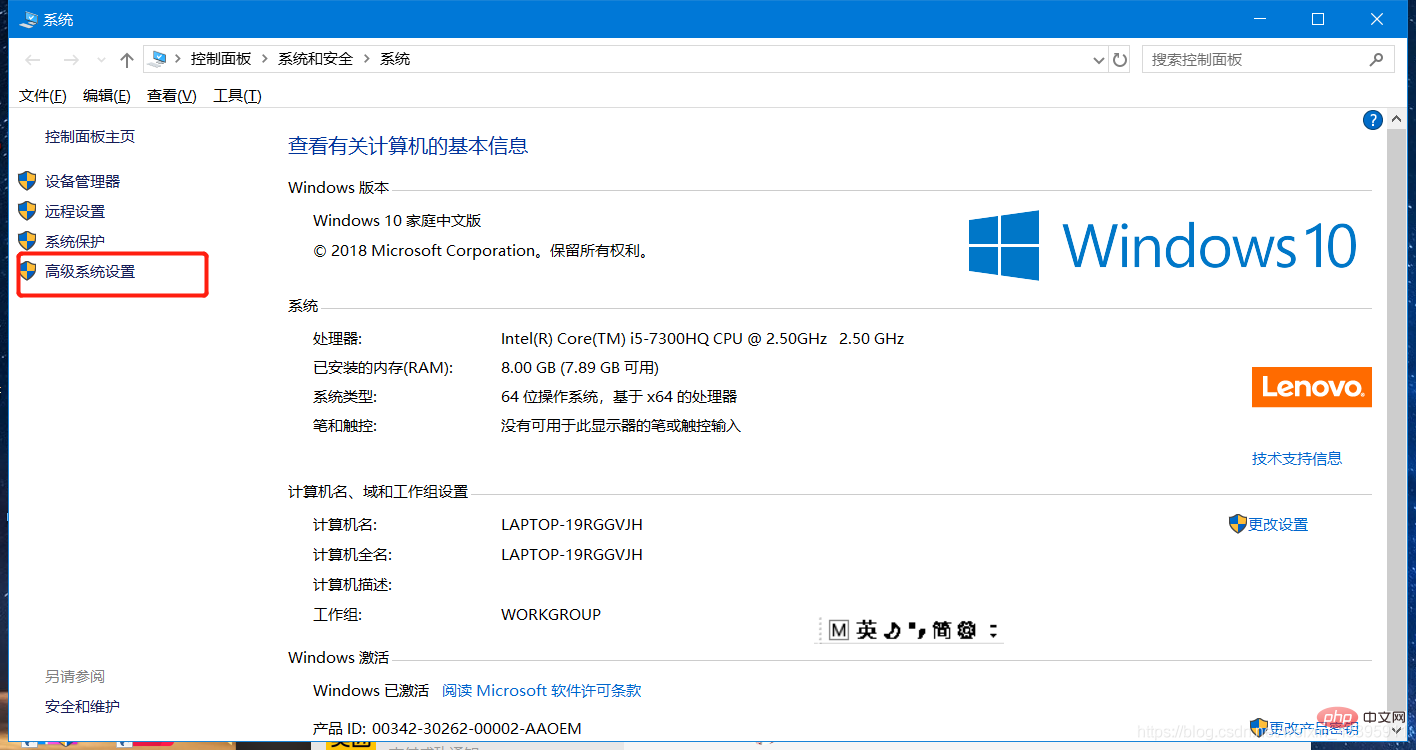
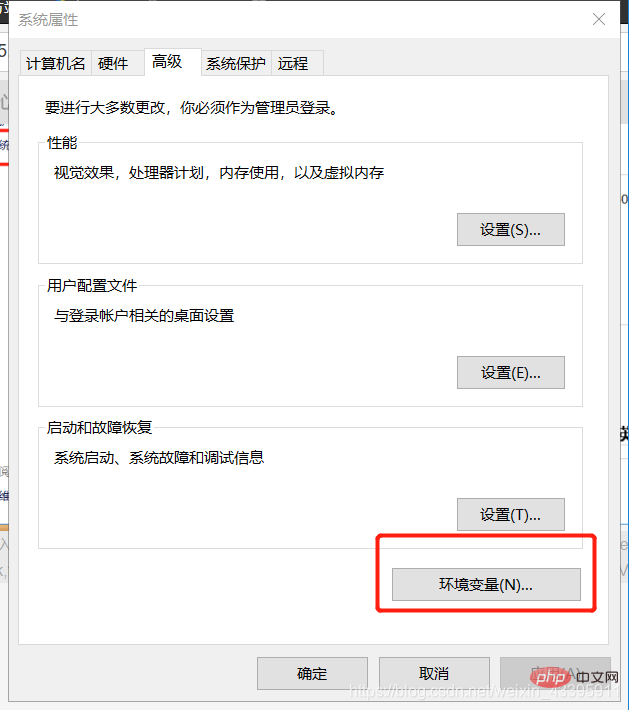
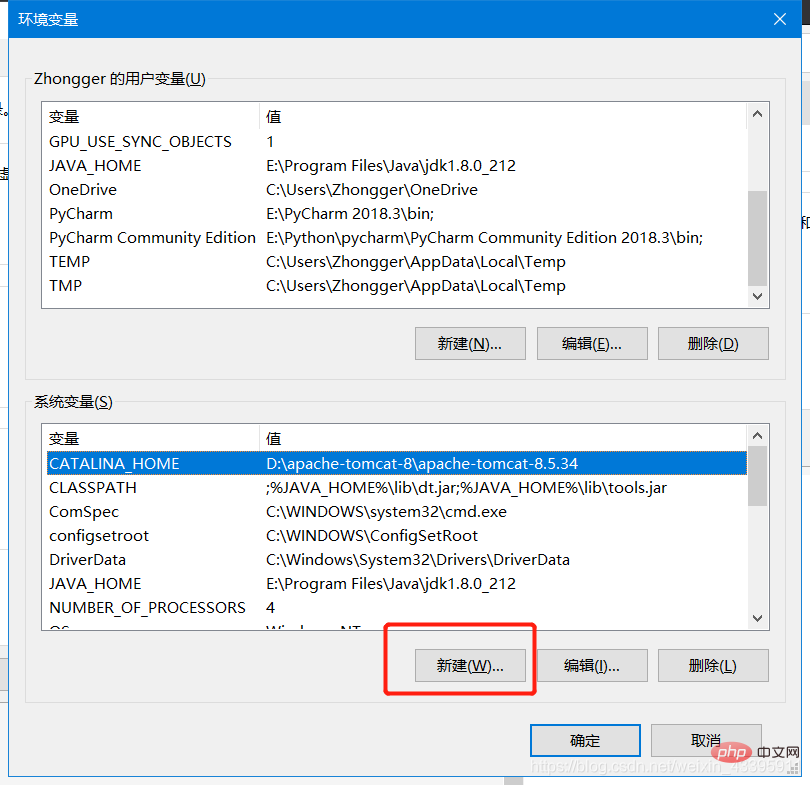
Click New, the variable name is: MYSQL_HOME, and add the location of your mysql-5.7.27-winx64 folder.
Mine is in E:\Program Files\Mysql\mysql-5.7.27-winx64, as shown in the picture:

Edit Path and copy;% MYSQL_HOME%\bin to the end of the original value, as shown in the figure:
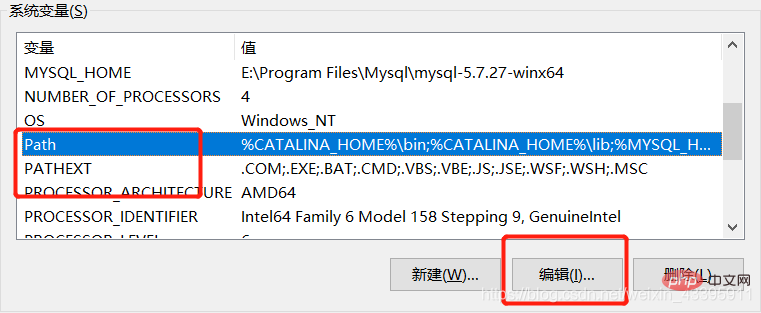
3. Configure the my.ini file
in your mysql-5.7.27 -Create a new my.ini file in the winx64 directory. Mine is in the E:\Program Files\Mysql\mysql-5.7.27-winx64 directory. The content of the my.ini file is:
[mysqld] #端口号 port = 3306 #mysql-5.7.27-winx64的路径 basedir=E:\Program Files\Mysql\mysql-5.7.27-winx64 #mysql-5.7.27-winx64的路径+\data datadir=E:\Program Files\Mysql\mysql-5.7.27-winx64\data #最大连接数 max_connections=200 #编码 character-set-server=utf8 default-storage-engine=INNODB sql_mode=NO_ENGINE_SUBSTITUTION,STRICT_TRANS_TABLES [mysql] #编码 default-character-set=utf8
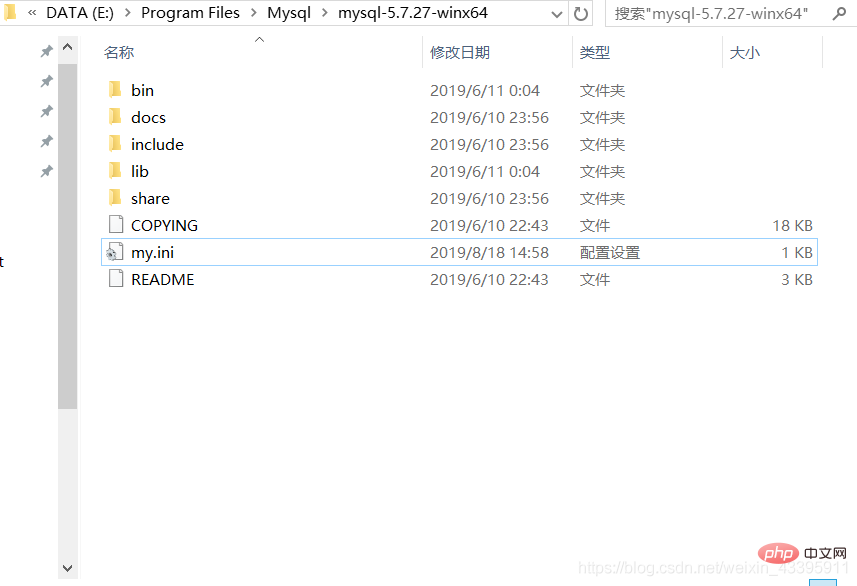
After the creation is completed, go to the next step.
4. Install MySQL
1. Enter cmd in the input box and run it as an administrator. Note that you must run it as an administrator here, otherwise during the installation process Install/Remove of the Service Denied! will appear due to insufficient administrative rights. This is very important!
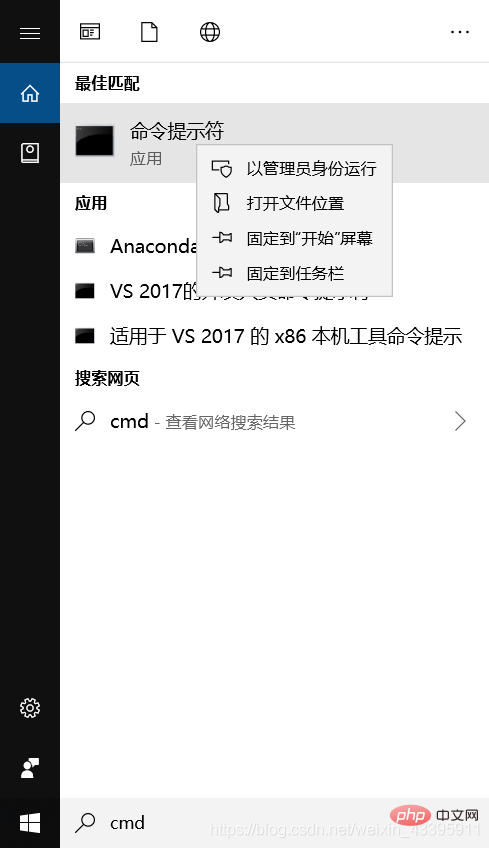
Enter the E:\Program Files\Mysql\mysql-5.7.27-winx64\bin directory in cmd:
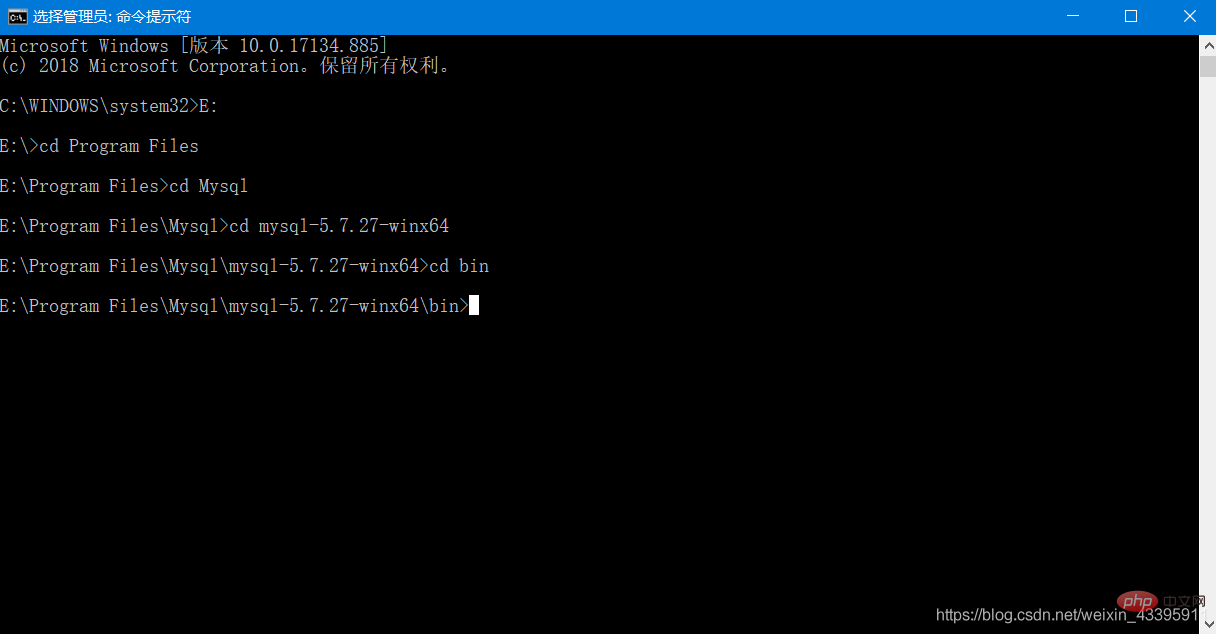
Enter the installation command: mysqld -install. If Service successfully installed appears, the installation is successful; if Install of the Service Denied appears, it means that cmd is not run with administrator rights:

Then continue to enter the command: mysqld --initialize, there will be no prompts at this time:

Then enter the startup command: net start mysql. The following prompt appears to prove that MySQL is started successfully:

5. Set the MySQL password
1. Here Setting the password is mainly to solve the problem of: ERROR 1045 (28000): Access denied for user 'root'@'localhost' (using password: NO)
2. First stop the MySQL service and enter the command line net stop mysql:

3. Find my.ini in the E:\Program Files\Mysql\mysql-5.7.27-winx64 directory, and enter any line under the [mysqld] field Add skip-grant-tables and save:
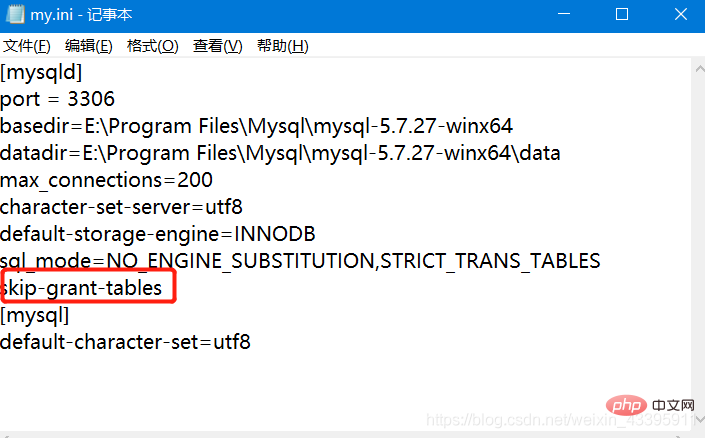
4. Restart MySQL and enter the startup command: net start mysql. The following prompt appears to prove that MySQL is started successfully:

Enter the command mysql -u root -p. No password is required, just press Enter:
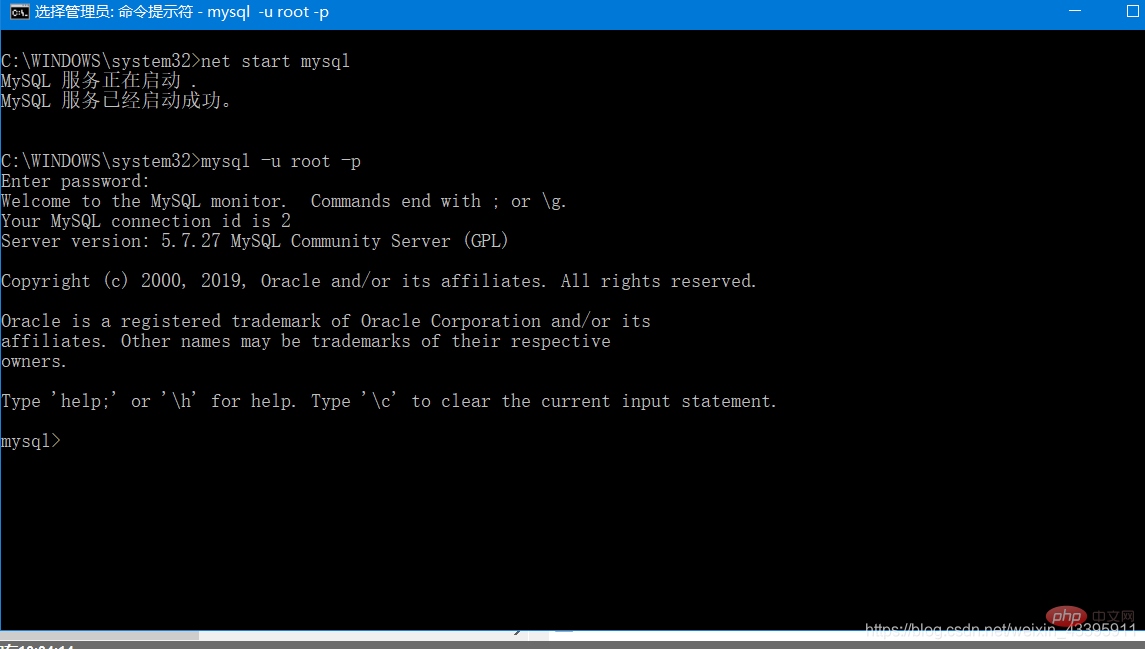
Enter MySQL successfully! Haha, you should be happy now that you have reached this step!
5. Enter the command line use mysql and enter the database:

6. Enter the command line update user set authentication_string=password("xxxxxx") where user ="root";xxxxxx is the new password you set. If the following message appears after hitting Enter, it proves that the modification is successful!

#7. Manually stop the MySQL service, enter service in the win10 search bar, and find MySQL. Just right-click and click Stop.
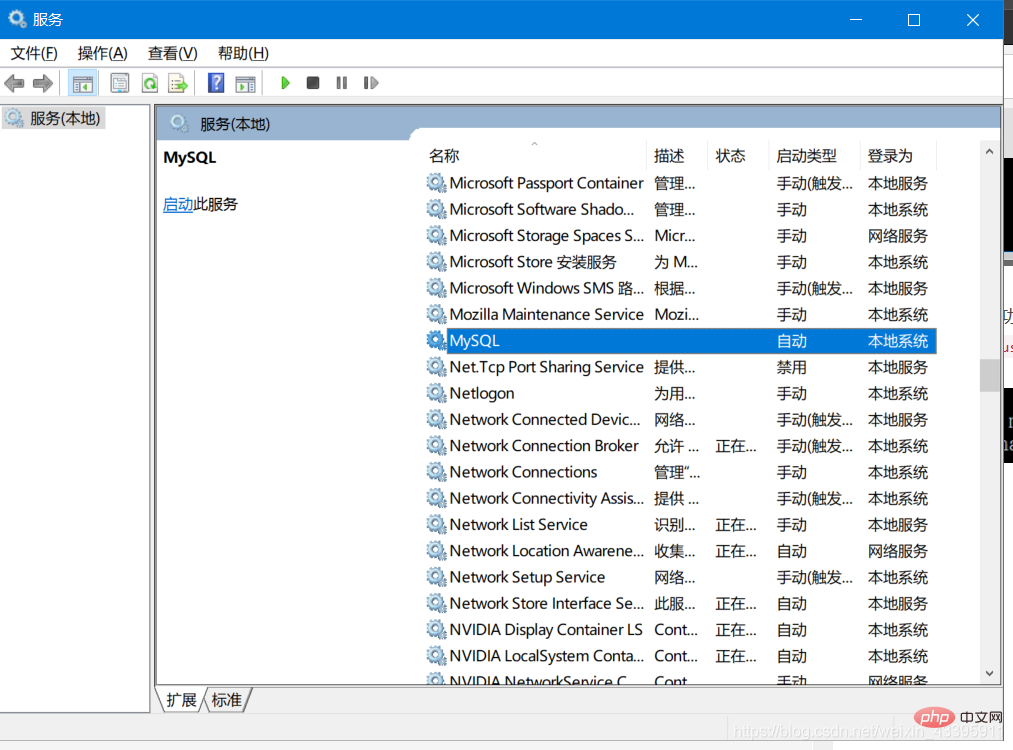
Then delete the skip-grant-tables line in the my.ini file just now, save and close.
8. Start cmd again (as administrator), enter the startup command: net start mysql, then enter mysql -u root -p, and then enter the password you just set. The following information appears to prove that the setting is successful!
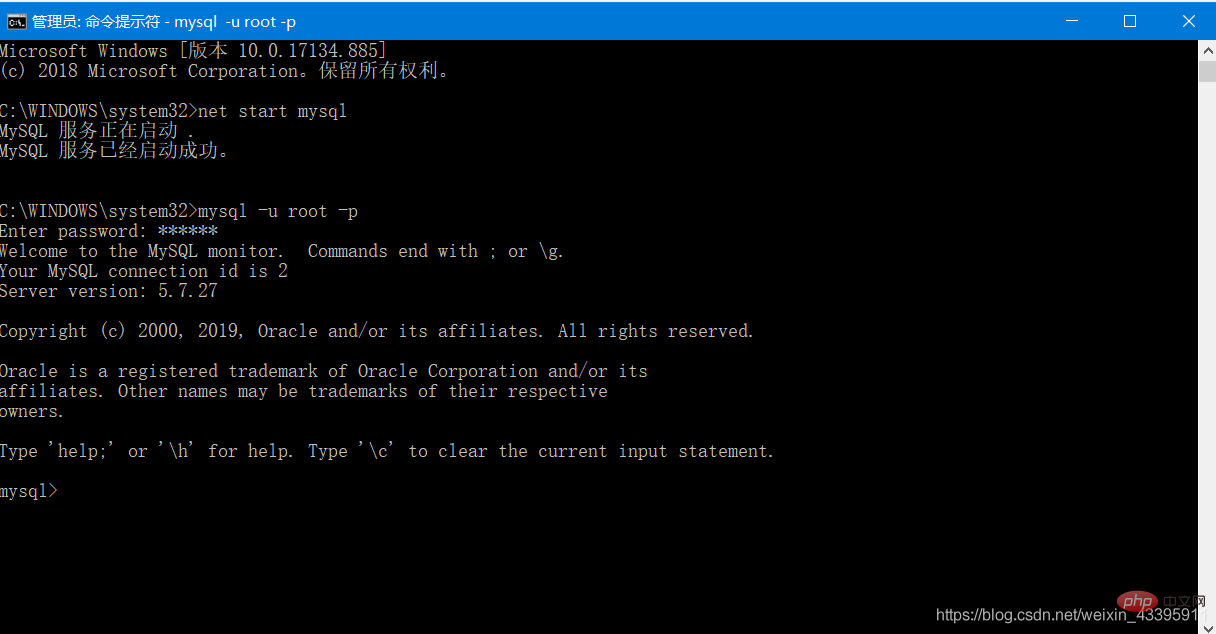
Then enter the command line use mysql to verify. The result is an error:

Since the password has not been reset, then Reset it
Type the command line alter user user() identified by "xxxxxx"; My password is 123456, so I type alter user user() identified by "123456"; Enter! Getting closer to victory!
Enter the command line use mysql again to verify, success!

Related recommendations: "mysql tutorial"
The above is the detailed content of How to download, install and configure MySQL 5.7.27. For more information, please follow other related articles on the PHP Chinese website!

Hot AI Tools

Undresser.AI Undress
AI-powered app for creating realistic nude photos

AI Clothes Remover
Online AI tool for removing clothes from photos.

Undress AI Tool
Undress images for free

Clothoff.io
AI clothes remover

Video Face Swap
Swap faces in any video effortlessly with our completely free AI face swap tool!

Hot Article

Hot Tools

Notepad++7.3.1
Easy-to-use and free code editor

SublimeText3 Chinese version
Chinese version, very easy to use

Zend Studio 13.0.1
Powerful PHP integrated development environment

Dreamweaver CS6
Visual web development tools

SublimeText3 Mac version
God-level code editing software (SublimeText3)

Hot Topics
 When might a full table scan be faster than using an index in MySQL?
Apr 09, 2025 am 12:05 AM
When might a full table scan be faster than using an index in MySQL?
Apr 09, 2025 am 12:05 AM
Full table scanning may be faster in MySQL than using indexes. Specific cases include: 1) the data volume is small; 2) when the query returns a large amount of data; 3) when the index column is not highly selective; 4) when the complex query. By analyzing query plans, optimizing indexes, avoiding over-index and regularly maintaining tables, you can make the best choices in practical applications.
 Can I install mysql on Windows 7
Apr 08, 2025 pm 03:21 PM
Can I install mysql on Windows 7
Apr 08, 2025 pm 03:21 PM
Yes, MySQL can be installed on Windows 7, and although Microsoft has stopped supporting Windows 7, MySQL is still compatible with it. However, the following points should be noted during the installation process: Download the MySQL installer for Windows. Select the appropriate version of MySQL (community or enterprise). Select the appropriate installation directory and character set during the installation process. Set the root user password and keep it properly. Connect to the database for testing. Note the compatibility and security issues on Windows 7, and it is recommended to upgrade to a supported operating system.
 Explain InnoDB Full-Text Search capabilities.
Apr 02, 2025 pm 06:09 PM
Explain InnoDB Full-Text Search capabilities.
Apr 02, 2025 pm 06:09 PM
InnoDB's full-text search capabilities are very powerful, which can significantly improve database query efficiency and ability to process large amounts of text data. 1) InnoDB implements full-text search through inverted indexing, supporting basic and advanced search queries. 2) Use MATCH and AGAINST keywords to search, support Boolean mode and phrase search. 3) Optimization methods include using word segmentation technology, periodic rebuilding of indexes and adjusting cache size to improve performance and accuracy.
 Difference between clustered index and non-clustered index (secondary index) in InnoDB.
Apr 02, 2025 pm 06:25 PM
Difference between clustered index and non-clustered index (secondary index) in InnoDB.
Apr 02, 2025 pm 06:25 PM
The difference between clustered index and non-clustered index is: 1. Clustered index stores data rows in the index structure, which is suitable for querying by primary key and range. 2. The non-clustered index stores index key values and pointers to data rows, and is suitable for non-primary key column queries.
 MySQL: Simple Concepts for Easy Learning
Apr 10, 2025 am 09:29 AM
MySQL: Simple Concepts for Easy Learning
Apr 10, 2025 am 09:29 AM
MySQL is an open source relational database management system. 1) Create database and tables: Use the CREATEDATABASE and CREATETABLE commands. 2) Basic operations: INSERT, UPDATE, DELETE and SELECT. 3) Advanced operations: JOIN, subquery and transaction processing. 4) Debugging skills: Check syntax, data type and permissions. 5) Optimization suggestions: Use indexes, avoid SELECT* and use transactions.
 Can mysql and mariadb coexist
Apr 08, 2025 pm 02:27 PM
Can mysql and mariadb coexist
Apr 08, 2025 pm 02:27 PM
MySQL and MariaDB can coexist, but need to be configured with caution. The key is to allocate different port numbers and data directories to each database, and adjust parameters such as memory allocation and cache size. Connection pooling, application configuration, and version differences also need to be considered and need to be carefully tested and planned to avoid pitfalls. Running two databases simultaneously can cause performance problems in situations where resources are limited.
 The relationship between mysql user and database
Apr 08, 2025 pm 07:15 PM
The relationship between mysql user and database
Apr 08, 2025 pm 07:15 PM
In MySQL database, the relationship between the user and the database is defined by permissions and tables. The user has a username and password to access the database. Permissions are granted through the GRANT command, while the table is created by the CREATE TABLE command. To establish a relationship between a user and a database, you need to create a database, create a user, and then grant permissions.
 Explain different types of MySQL indexes (B-Tree, Hash, Full-text, Spatial).
Apr 02, 2025 pm 07:05 PM
Explain different types of MySQL indexes (B-Tree, Hash, Full-text, Spatial).
Apr 02, 2025 pm 07:05 PM
MySQL supports four index types: B-Tree, Hash, Full-text, and Spatial. 1.B-Tree index is suitable for equal value search, range query and sorting. 2. Hash index is suitable for equal value searches, but does not support range query and sorting. 3. Full-text index is used for full-text search and is suitable for processing large amounts of text data. 4. Spatial index is used for geospatial data query and is suitable for GIS applications.






